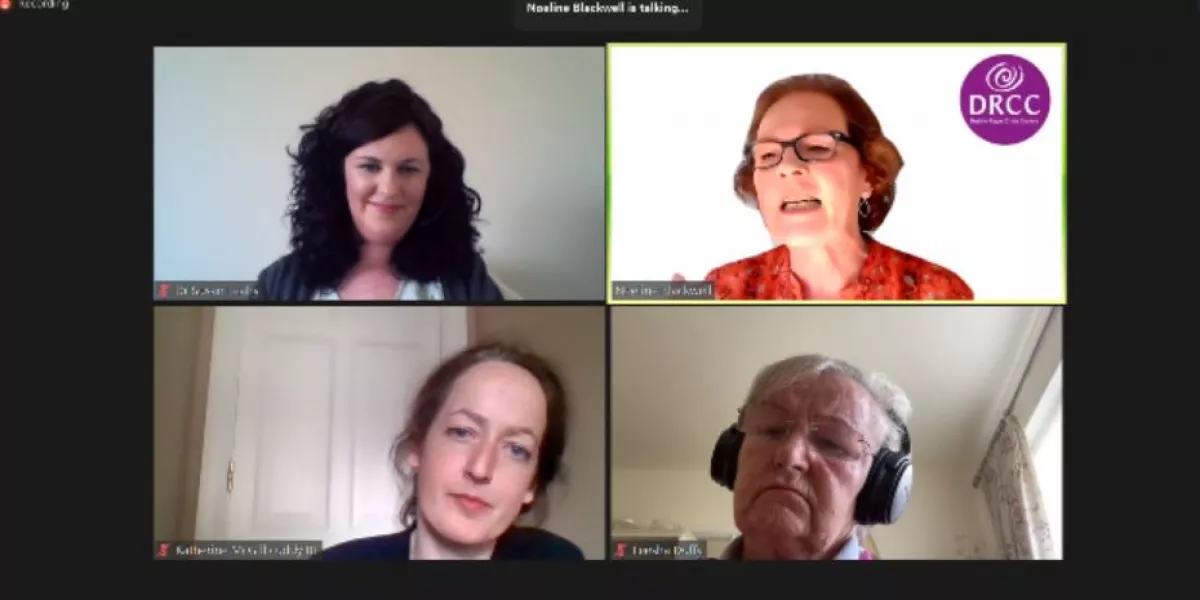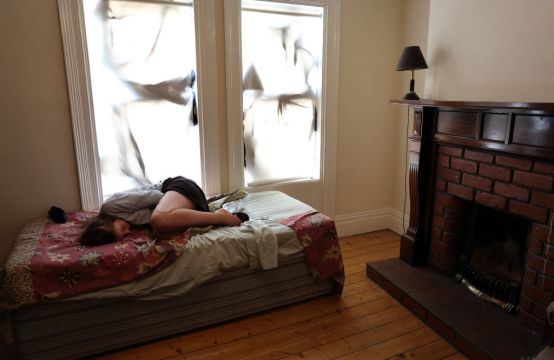Reform of the operation of rape trials in Ireland is “urgently” needed to ensure the rights of all those involved are recognised, a new study presented by the Dublin Rape Crisis Centre shows.
There is still “much work to do” to deliver best practice in the investigation, prosecution and trial of sexual offences in the country, the report exploring the realities of rape trials found.
The research was conducted by legal academic Dr Susan Leahy, of the University of Limerick, in partnership with the Dublin Rape Crisis Centre.

Dr Leahy sought to uncover the process of rape trials by obtaining the views of certain key stakeholders involved including legal professionals and court accompaniment workers.
It also sought to help fill a gap caused by the lack of empirical data on the practical operation of current sexual offence trials.
Delay was cited as the biggest concern in the trial process, with many cases taking years and having a significant impact on both complainant and accused.
Pre-trial hearings were suggested as a way to help case management.
A broad lack of understanding of sexual consent was also found to be impacting rape trials.
Both lawyers and court accompaniment workers felt the wider social understanding of consent was “central” and that the legal reform was only part of overall reform work needed.
Some accompaniment workers noted that younger people had a better understanding of consent, implying education initiatives including media/social media campaigns on consent have an impact, and suggesting awareness initiatives targeted at other age groups are required.
The report also highlighted the need to reform areas like legal advice and representation for complainants, the focus on complainant’s other sexual experience, the use of their counselling records and the level of knowledge that juries have on consent in rape trials.
Noeline Blackwell, chief executive of the Dublin Rape Crisis Centre, said the study adds considerably to the understanding of the reality of sexual offence trials.
“It points clearly to the need for a dedicated reporting system which would go beyond media and headline reports but would report on the totality of cases,” Ms Blackwell said.
“The report shows that reform of the system is urgent and essential if the rights of all those involved are to be recognised.”
Dr Leahy said she was very grateful to the legal professionals and court accompaniment workers who gave their time to participate in the study.
“Their views offer an invaluable insight in to the practical operation of the laws and procedures relating to Irish rape trials,” she said.
“Developing our knowledge of how the current law is operating in practice is vital in order to understand whether recent reforms are achieving their intended objectives and to identify outstanding issues which need to be addressed within the system.”
Realities of Rape Trials in Ireland: Perspectives from Practice. New research has been conducted on the operation of rape trials drawing on the experience of legal professionals & court accomp workers supporting complainants. For access to the report go to https://t.co/3iiK74M9X9 pic.twitter.com/migKSzky2c
— Dublin Rape Crisis Centre (@DublinRCC) June 21, 2021
Speaking during an online seminar unveiling the report, Ms Blackwell said the research shows a need for wider recognition of what constitutes consent.
“It’s important for healthy sexual relationships, its important for equality and its also important because we need to be certain that all those involved in investigating, prosecuting, defending and making decisions in criminal trials, including juries that they all have much the same understanding [of consent] and that’s not uniformly clear,” she said.
The DRCC chief executive added that the organisation was keen to develop a wider awareness campaign to “build more of a consensus around consent”.
She also said it would be “useful” to have judicial guidance, for both judges and jurors, to ensure rape myths are addressed.
The report recommends that guidance for juries be introduced “as a priority to address rape myths – ingrained/pre-existing biases, stereotypes, and assumptions they may have, whether conscious or unconscious”.
It advises that this guidance should “preferably” be given at the start of a trial but with judicial discretion to repeat it when needed.
It also recommends providing training to judges and legal professionals on how to use guidance appropriately and meaningfully.
“The question of judicial guidance to juries might not only be necessary for the juries,” Ms Blackwell said.
“It might be useful to have some sort of templates that would inform the legal personnel in a trial, including the judges, who are all part of society and may therefore be party to many of the misconceptions that there are about what is and what is not consensual sexual activity,” she said.
Dr Leahy told the seminar the delays in the system were causing additional “distress” to complainants.
“Healing is put on hold until they have given their evidence,” Dr Leahy said. “So the wait, delay and uncertainty compounds the trauma in these trials.”
The report author added there was “no clearly defined” reason why delays in cases occur and it is to “everyone’s disadvantage”.
“It is of benefit to nobody in the system,” she said.
“It’s obviously highly traumatic to complainants but also for defendants and people who work in the system to have these cases lingering on and on.”







